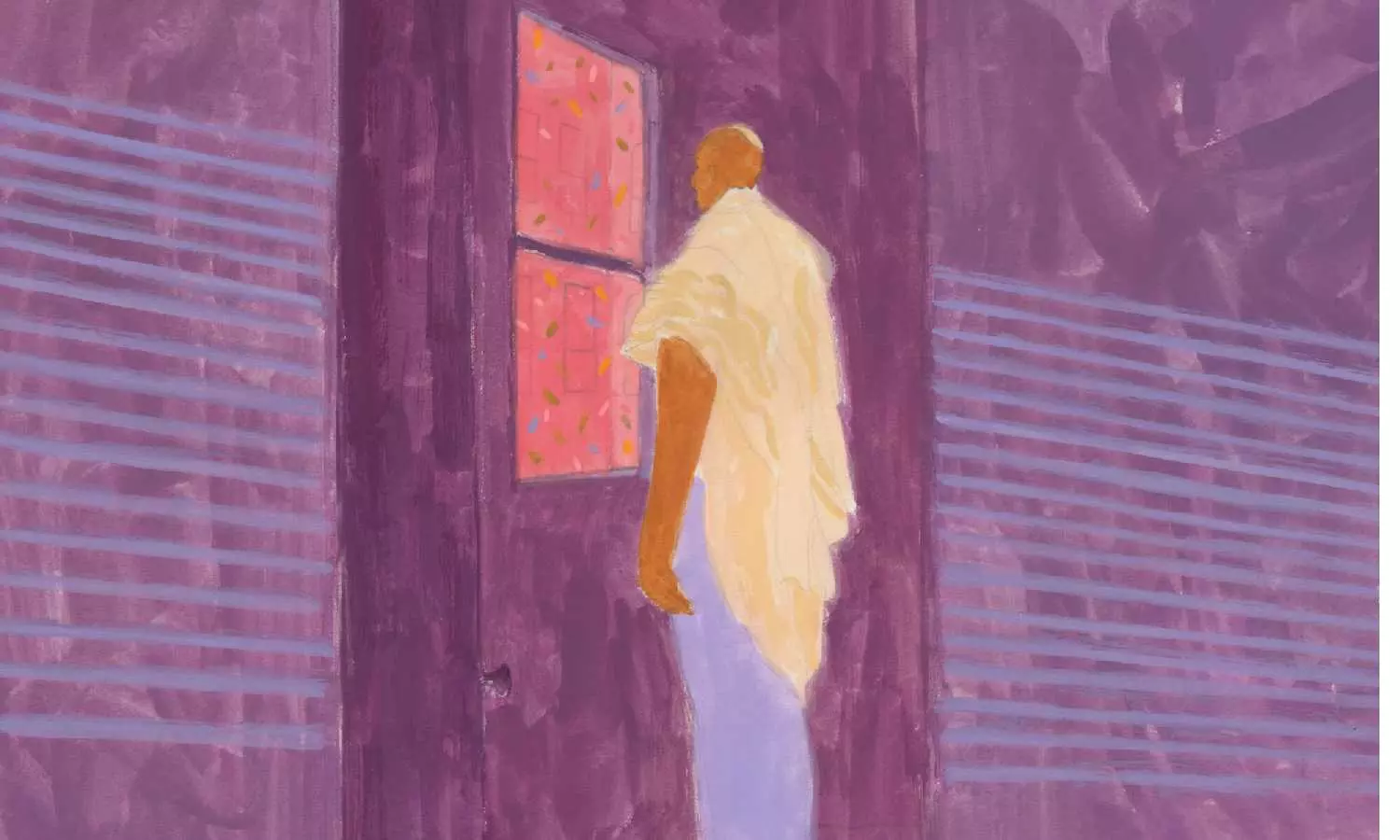The Pride March Doesn’t Have a Place for Me
We’re being told to choose a side and to condemn the other as represented by bigots and apologists for murder. There is a much bigger and more complex picture of Israel and Gaza that defies the reality of Instagram reels and catchy slogans.;

Amichai Lau-Lavie
I’ve been marching in Pride parades since 1995, but I won’t be marching this year in New York, where I live. Pride Month has always been about a political and progressive embrace of our rainbow of choices. But lately I find myself feeling alienated by loud voices among activists in the L.G.B.T.Q.+ community on all sides of the Israel-Gaza war. They’re intolerant of nuance, complexity and opposing views.
I’m an Israeli American queer faith leader and social justice activist. Along with my brother and cousins I represent the 39th consecutive generation of rabbis in our family, according to our family history, and I am also the first openly queer rabbi in our lineage. Long before Oct. 7, 2023, Jewish progressives like me protested the Israeli occupation and preached a just two-state solution. I have helped to pioneer faith-led Pride programs that are grounded in Jewish values, fighting for freedom and liberation for all.
So it’s painful to admit that I don’t feel welcome as my full self in many queer public places that once felt like home. Many queer activists who are mobilizing for the plight of Palestinians are convinced this war constitutes genocide and leave no room for other interpretations. Meanwhile, from the other side, many pro-Israel queer activists are conflating opposition to this brutal war with support for Islamic fundamentalism and consider all criticism a betrayal. As activists on either end of the spectrum demand complete allegiance, they’re squeezing out those of us who don’t fall in line.
We’re being told to choose a side and to condemn the other as represented by bigots and apologists for murder. There is a much bigger and more complex picture of Israel and Gaza that defies the reality of Instagram reels and catchy slogans.
I see too many progressive allies failing to condemn antisemitism when it arises in our midst. In January I joined a pro-Palestinian protest in New York City’s Union Square, where about a dozen protesters, clad in rainbow flags, shifted their chants from blaming Israel to “Kill the Jews.” Some in the crowd shrugged, some objected, but it took time before the chant changed. Fearing for my physical safety, I didn’t stick around to see what happened next.
I admire and sympathize with the passionate rage with which many in my progressive communities demand justice and an immediate end to the tragic reality in Gaza and Israel. But the antisemitism incident, like many others on screens and in streets, unintentionally strengthens those on the right, some of whom are intolerant of people in the queer community. At the same time, the rainbow flag, a symbol of liberation and inclusion, has been co-opted by Israelis fighting the war. Israeli gay activists and official Israeli media channels have posted photos of Israel Defense Forces soldiers waving the flag among the rubble in Gaza.
This all feels like a betrayal of what Pride means. If the queer community can’t handle nuance, who can? I fear for what that means in both of my homelands and for all of us. Pride has never been about unity of belief. At Pride marches, the corporate floats with gleaming logos don’t exactly align with the more anti-capitalist radicals. Pride started as a riot and became a public protest and celebration, and for me it has always been a place of complexity, disagreement and radical inclusion.
At some Pride parades I have drummed in drag with activists. At others I have marched with my kids and our queer family. I have also led multifaith rallies and rituals as a rabbi, wrapped in a prayer shawl. Pride weekend is, for many of us, both a holiday and a holy day.
But I have felt discomfort at Pride marches before. During the N.Y.C. Pride March in 2015, I paraded down Fifth Avenue with my family and at some point my then 5-year-old spotted a small Israeli flag on the street, picked it up and started waving it with joy. Then some cheers from the sidewalk were replaced by boos and expletives and a jeer of, “You don’t belong here!” We were shocked, but we marched on.
That summer, I marched in Jerusalem Pride in Israel, and although the overwhelming response was positive and enthusiastic, some counterprotesters from the ultra-Orthodox Jewish community hurled insults and threw dirty diapers at us.
Public pride still matters as hatred and discrimination continue to threaten our rights and lives, but parades aren’t the only way to celebrate and advocate progress. From my queer elders, I learned the wise ways of something called a heart circle, where we sit and listen to one another with respect and patience, eye to eye, heart to heart. No matter our hurts, we commit to our shared healing.
And from my Jewish elders I inherited the wisdom of the Passover Seder, with its fraught conversations and debates around the table, recharging and then recommitting to pursuing liberation for all. So this year, with respect and gratitude to those organizing marches and showing up to fight for freedom, I’ll be gathering a heart circle instead. We will break bread together as queer companions with different political perspectives to mourn the unbearable losses, to celebrate Pride, to process our thoughts and feelings despite the deep, principled divides that exist, to hear and to heal somewhere in the messy middle, as loving, honest and loud and proud as we can be. Perhaps next year we’ll march for peace and pride, together again.

